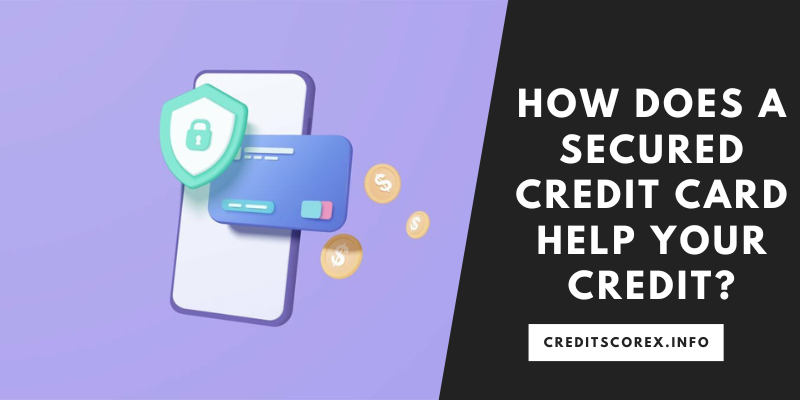Secured credit cards are not just a financial tool for those with a limited credit history or a less-than-stellar credit score; they are a pathway to rebuilding and establishing creditworthiness. In this article, we’ll explore how secured credit cards work and the ways in which they can positively impact your credit.

1. The Basics of Secured Credit Cards: Building on a Solid Foundation
A secured credit card operates much like a traditional credit card, but with one key difference—the cardholder is required to make a security deposit, which becomes the credit limit for the card. This deposit mitigates the risk for the card issuer and allows individuals with limited or damaged credit to access credit in a responsible and controlled manner.
2. Establishing or Rebuilding Credit: A Second Chance
For individuals with no credit history or a history marred by negative marks, secured credit cards provide an opportunity to establish or rebuild credit. Since the credit limit is secured by a deposit, the risk to the card issuer is minimized, making these cards accessible to a broader range of applicants.
3. Responsible Credit Use: The Key to Success
The primary way secured credit cards help your credit is by providing a platform for responsible credit use. When you make purchases with your secured card, it’s crucial to do so within your means and to pay your balance in full or at least make the minimum payment by the due date. Responsible credit behavior, including timely payments, contributes positively to your credit history.
4. Timely Payments: A Credit Score Booster
Payment history is a significant factor in credit scoring models, typically accounting for about 35% of your credit score. Making on-time payments on your secured credit card demonstrates to creditors and credit bureaus that you can manage credit responsibly. Each timely payment has a positive impact on your credit history and, subsequently, your credit score.
5. Credit Utilization Ratio: Maintaining a Healthy Balance
Another critical factor influencing your credit score is the credit utilization ratio—the ratio of your credit card balances to your credit limits. With a secured credit card, your credit limit is determined by the security deposit you provide. Keeping your balances low and well below the credit limit contributes positively to your credit utilization ratio.
6. Graduating to Unsecured Credit: A Milestone Achievement
Some secured credit card issuers offer the opportunity to transition to an unsecured credit card after a period of responsible use. This transition is often accompanied by the return of the security deposit. Moving to an unsecured card not only provides additional financial flexibility but can also further enhance your credit score.
7. Reporting to Credit Bureaus: Building a Positive History
To maximize the credit-building potential, choose a secured credit card issuer that reports your payment history and account activity to major credit bureaus—Equifax, Experian, and TransUnion. Regular reporting ensures that your responsible credit behavior is reflected in your credit reports, contributing to the overall improvement of your credit profile.
8. Multiple Secured Accounts: Proceed with Caution
While having one secured credit card can be beneficial for building credit, opening multiple secured accounts within a short period can have a temporary negative impact on your credit score. Each application typically results in a hard inquiry, and a flurry of inquiries can signal risk to creditors.
9. Monitoring Your Credit: Stay Informed
Regularly monitoring your credit reports is a good practice, especially as you build credit with a secured card. Check for accuracy, confirm that your secured card activity is reported correctly, and address any discrepancies promptly. Credit monitoring services can provide real-time updates and alerts about changes to your credit profile.
10. Upgrade to Unsecured Credit: Seizing New Opportunities
As your credit improves and you demonstrate responsible credit use, explore opportunities to upgrade to an unsecured credit card. Many credit card issuers offer product upgrades or may even extend prequalified offers for unsecured cards. Transitioning to an unsecured card without a security deposit is a significant milestone in your credit journey.
Conclusion: A Stepping Stone to Financial Success
In conclusion, secured credit cards serve as a stepping stone to financial success, particularly for those looking to establish or rebuild their credit. By utilizing a secured card responsibly, making on-time payments, and keeping credit balances in check, you can pave the way for a positive credit history and a brighter financial future. Consider a secured credit card not just as a tool for immediate needs but as an investment in your long-term creditworthiness.
Leave a Reply